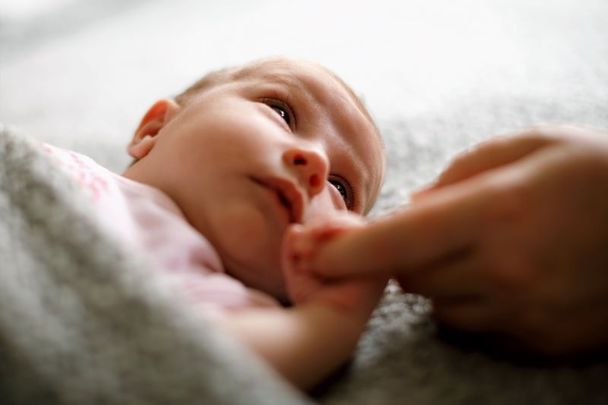The Northern Ireland Executive has agreed to an independent investigation into the region’s Mother and Baby Homes and Magdalene Laundries.
The decision was announced on January 26, the same day the Research Report on Mother and Baby Homes and Magdalene Laundries in Northern Ireland was published.
Ministers have agreed that the independent investigation should be shaped by survivors through a co-design process, which will be facilitated by experts and completed within six months.
First Minister of Northern Ireland Arlene Foster said on Tuesday that the newly-published research report "documents the experiences of survivors and crucially allows their voices to be heard, when they have been silenced for far too long."
She acknowledged "with deep regret" the pain and hurt "caused to women and girls who did nothing more than be pregnant outside of marriage, some of them because they were victims of criminal acts."
"It was shameful how so many of these women were treated," Foster said. "The accounts of cold and uncaring treatment are truly harrowing; and the separation of mothers from their children a terrible legacy.
“Many unanswered questions remain and we want to work with victims and survivors to ensure they are supported in the right way.
"In moving forward, we must recognise the sensitivity of these issues and respect the rights and wishes of each individual. But today we give a commitment to survivors, that you will be silenced no more.”
You can see First Minister Foster's comments on the report and the investigation here, beginning at 4:37:22:
Deputy First Minister of Northern Ireland Michelle O’Neill said that the newly-published report is "a difficult read" but is also "an important step towards addressing the harm caused to survivors and the pain they have endured."
“The harsh treatment of these women was cruel, unjust, and inhumane," O'Neill said, adding, "They were failed on every level and we cannot allow them to be failed any longer."
O'Neill said the research report is the first step in doing "all we can to ensure that survivors' voices are heard, to support them, and where possible, give them answers, information, and recognition."
"We now need to move swiftly on with a further independent investigation," O'Neill said. "We recognise how sensitive this issue is and how raw the pain still felt by all who suffered. We must move forward carefully and respectfully and ensure that at all times the voices of those survivors and their now-adult children are at the centre of this process. They will shape how it progresses.”
O'Neill also shared a video on her Twitter in which she said: "It is an indictment on the church and the state that this abuse took place and that it has taken so long for your stories to be heard."
Today marks a major milestone for many survivors of abuse in Mother & Baby homes & Magdalene Laundries with the publication of this harrowing report.
Today is the start of the final length of a long road to justice - & be assured, your wishes will guide me & I will walk with you pic.twitter.com/8xx4eCqAAV
— Michelle O’Neill (@moneillsf) January 26, 2021
The Research Report on Mother and Baby Homes and Magdalene Laundries in Northern Ireland
The extensive research was undertaken by a team of academics - Dr. Leanne McCormick and Professor Sean O’Connell, with Dr. Olivia Dee and Dr. John Privilege - from Queen’s University Belfast and Ulster University in Northern Ireland.
The research report, which runs more than 500 pages long, considers Magdalene Laundries and Mother and Baby Homes, both Catholic and Protestant, in Northern Ireland between 1922 and 1990 and features oral testimonies from survivors and staff.
During the period, around 10,500 women were admitted to Mother and Baby institutions and around 3,000 women were admitted to Magdalene Laundries.
There were "strong similarities" with the experience of women examined in the recent report of the Commission of Investigation into Mother and Baby Homes, which was published in the Republic of Ireland earlier this month.
Around a third of women admitted to the Mother and Baby Homes in Northern Ireland were aged under 19 and most were aged from 20-29. The youngest was 12, and the oldest was 44.
The overwhelming factor in admissions to Mother and Baby Homes, according to the research report, was familial pressure. A number of females entered mother and baby homes as the result of a sexual crime, including incest, rape, or unlawful carnal knowledge.
The girls and women who entered into the Mother and Baby Homes examined in the report were admitted by families, doctors, priests, and state agencies. They were required to undertake tough chores late into pregnancy, and they had little preparation for childbirth.
The report’s research clearly shows that a significant number of children, born to mothers resident in Mother and Baby Homes in Northern Ireland at the time of their birth, were adopted by families in the Republic of Ireland, other parts of the UK, or in the USA. Further work is required to conclusively determine the legality or otherwise of adoptions of children born in mother and baby homes in Northern Ireland.
While the last Magdalene Laundry in Northern Ireland closed in 1984, the last Mother and Baby institution in the region closed in 1990.
The full research report is available here.




Comments